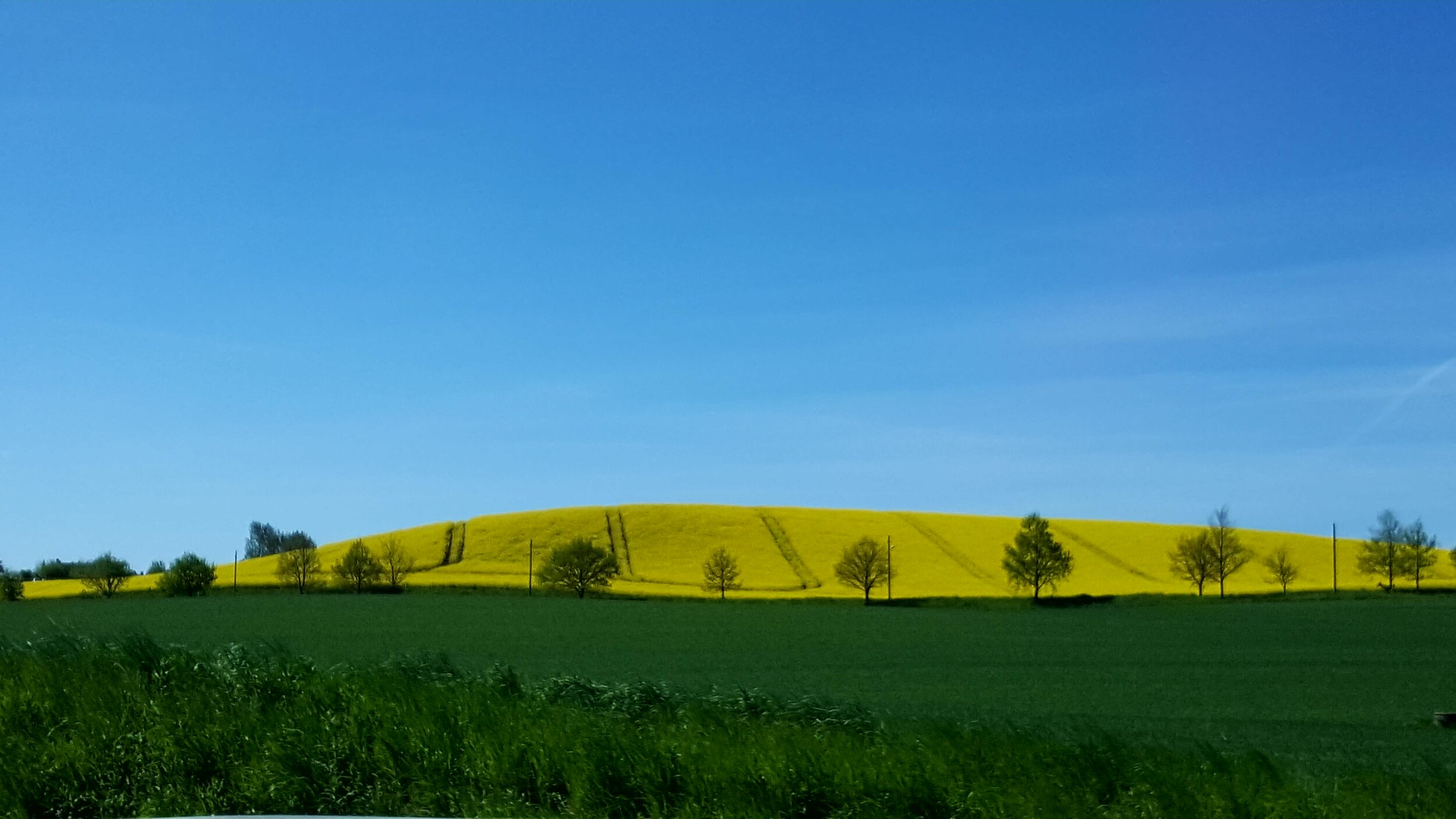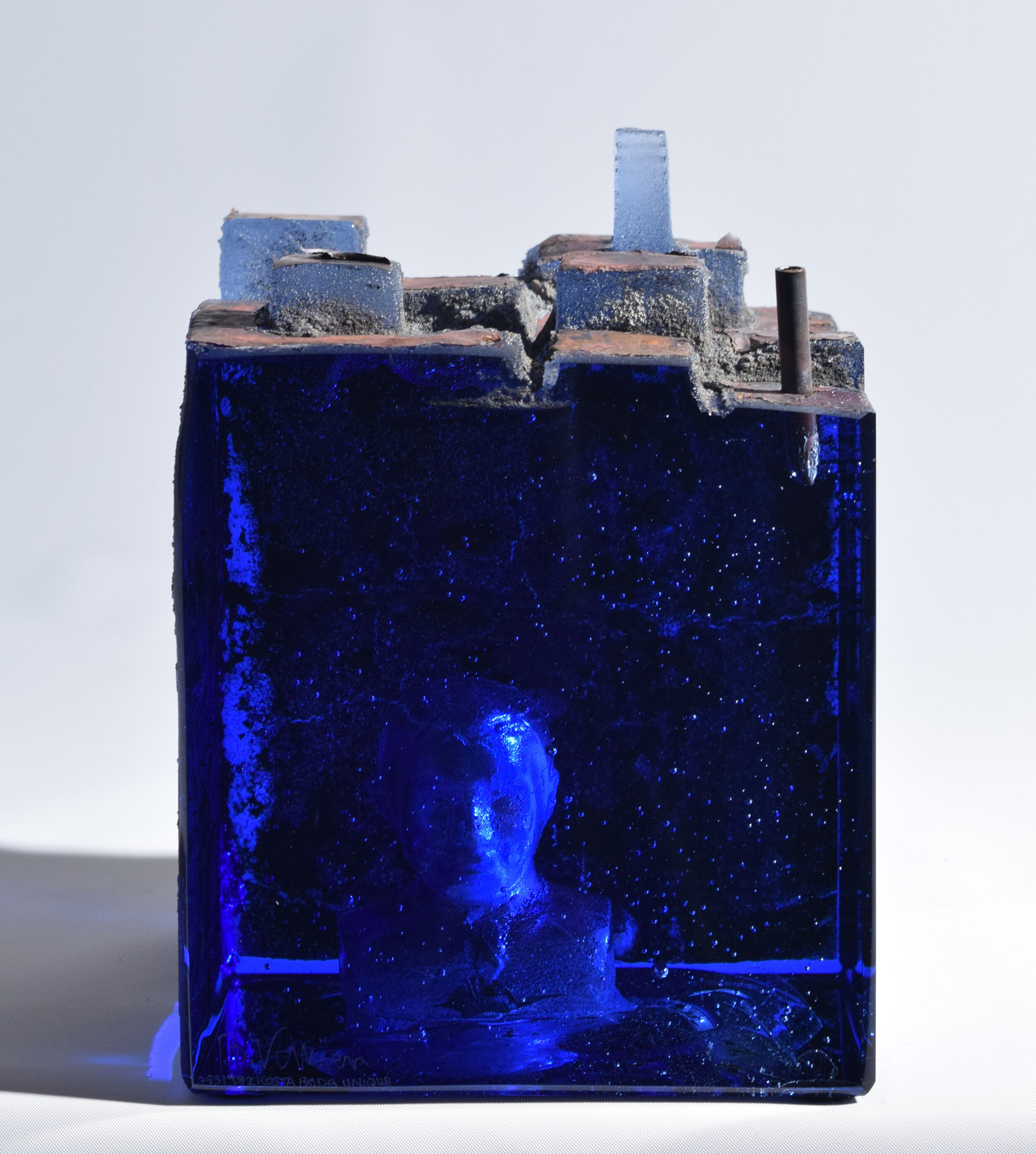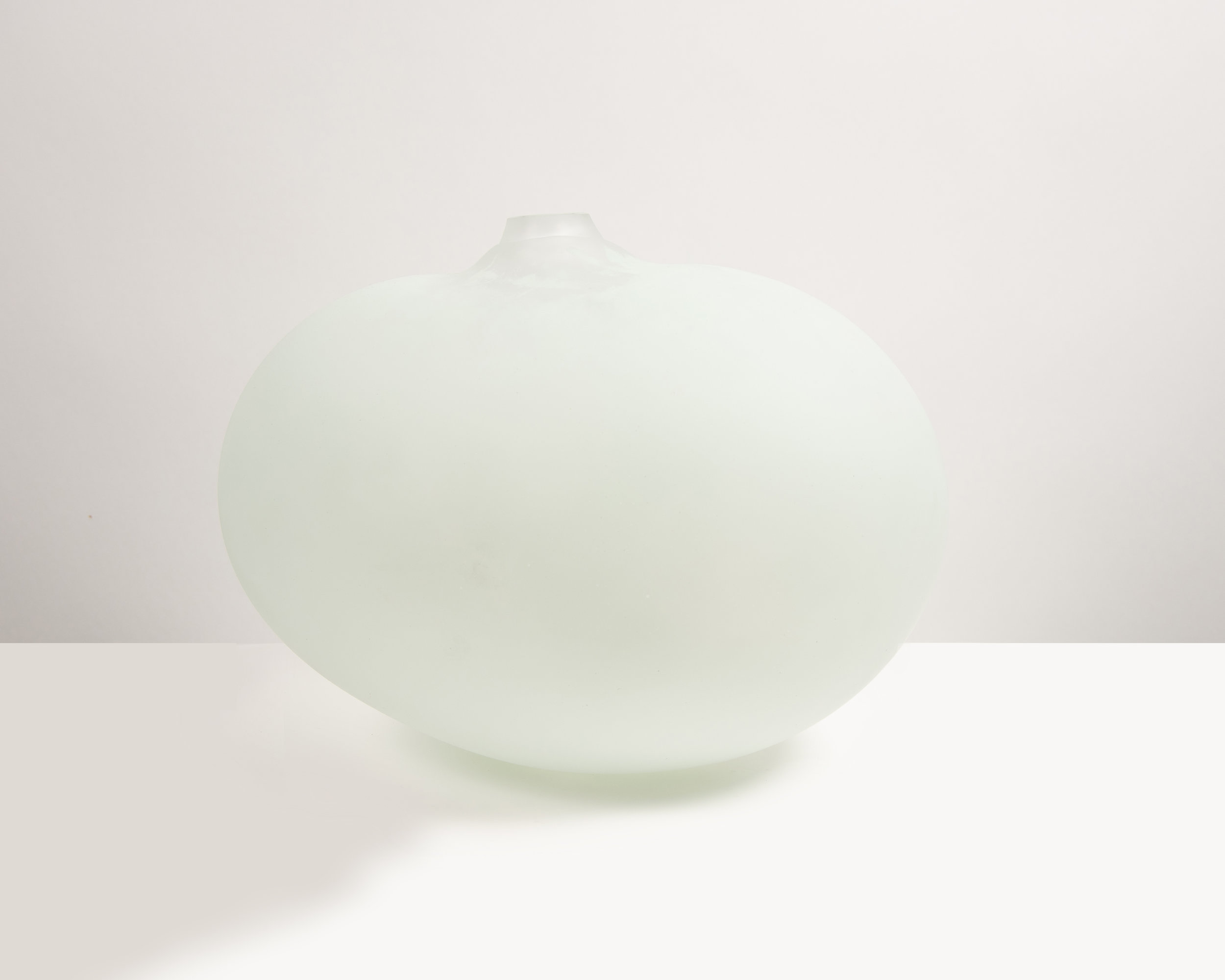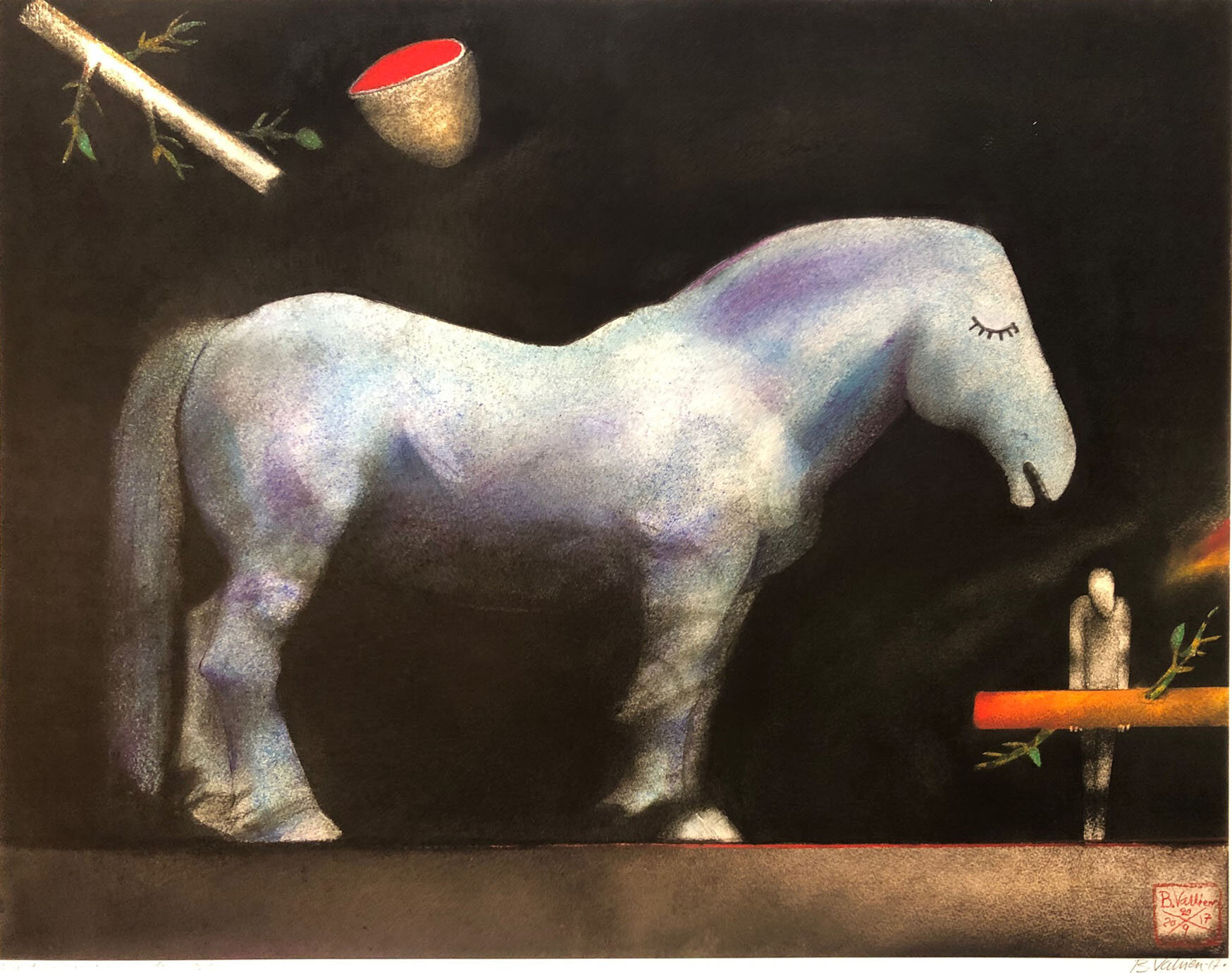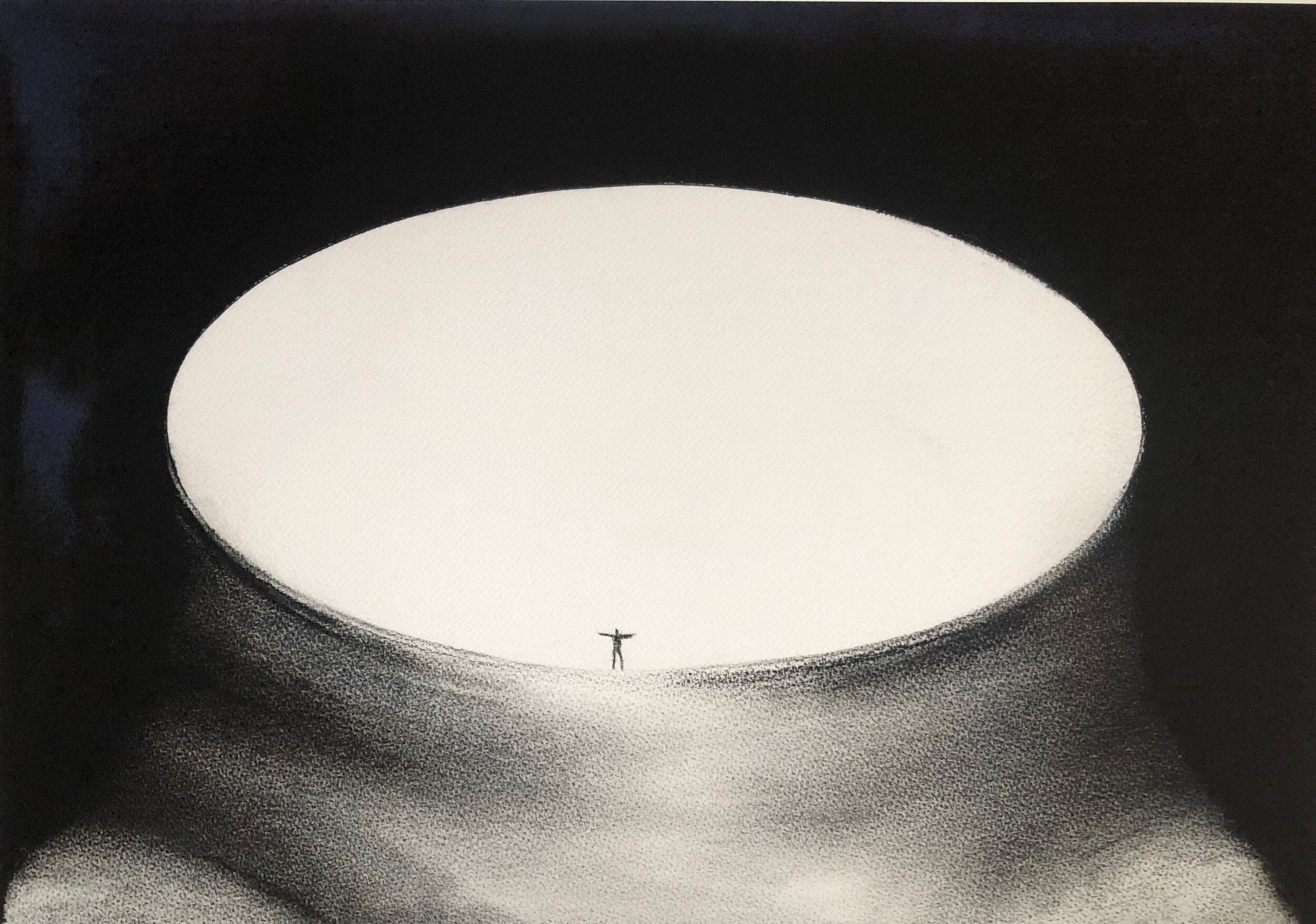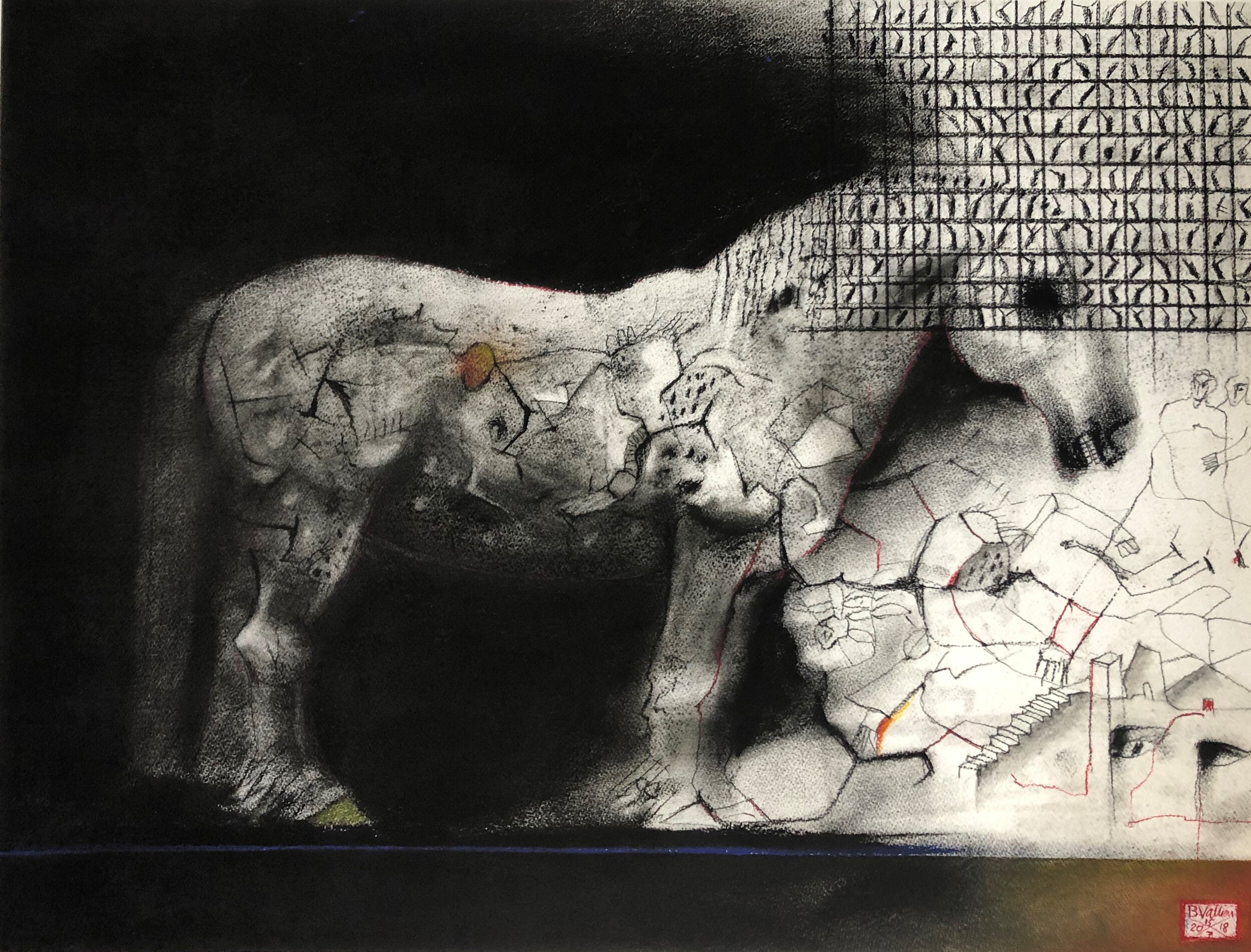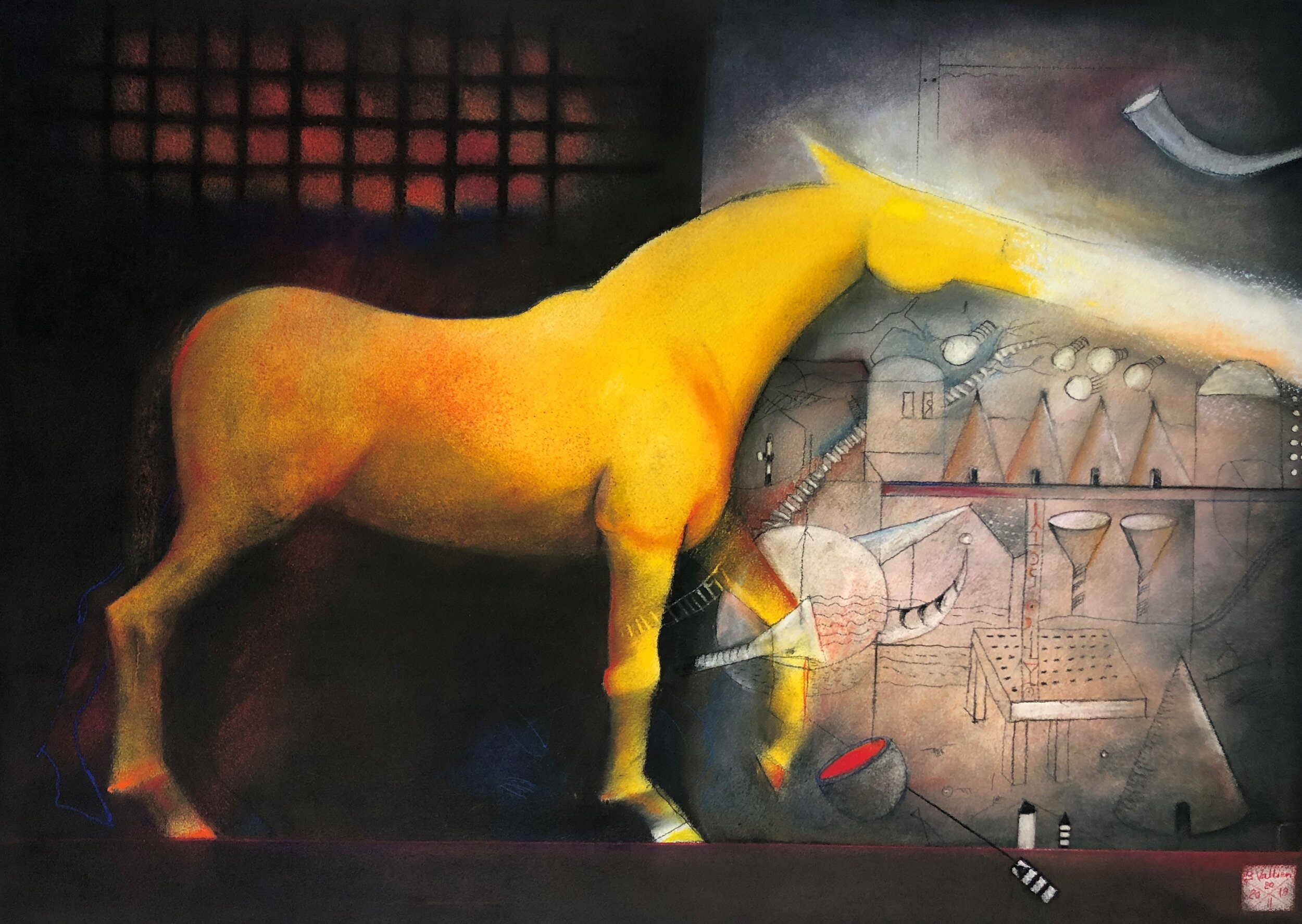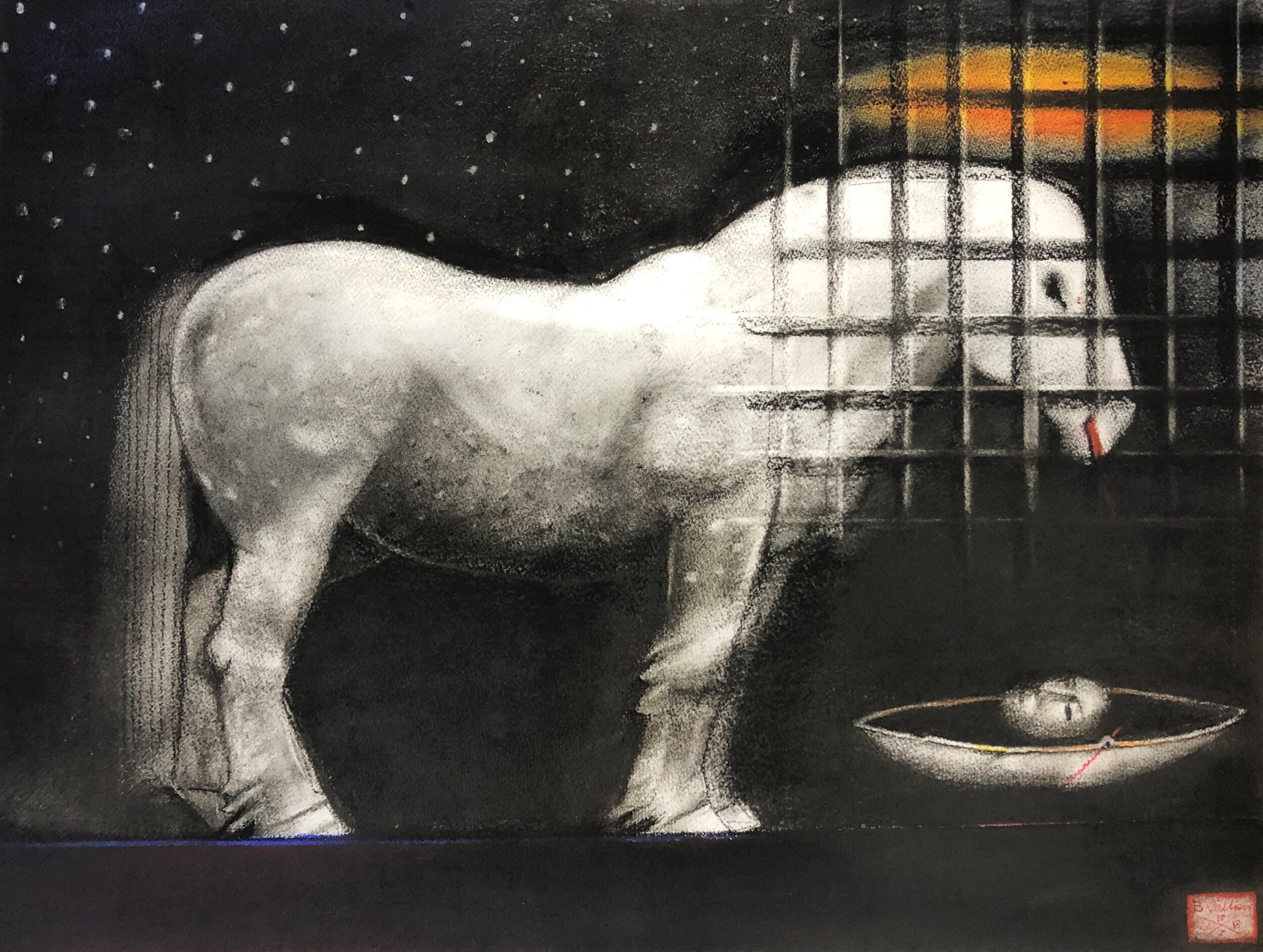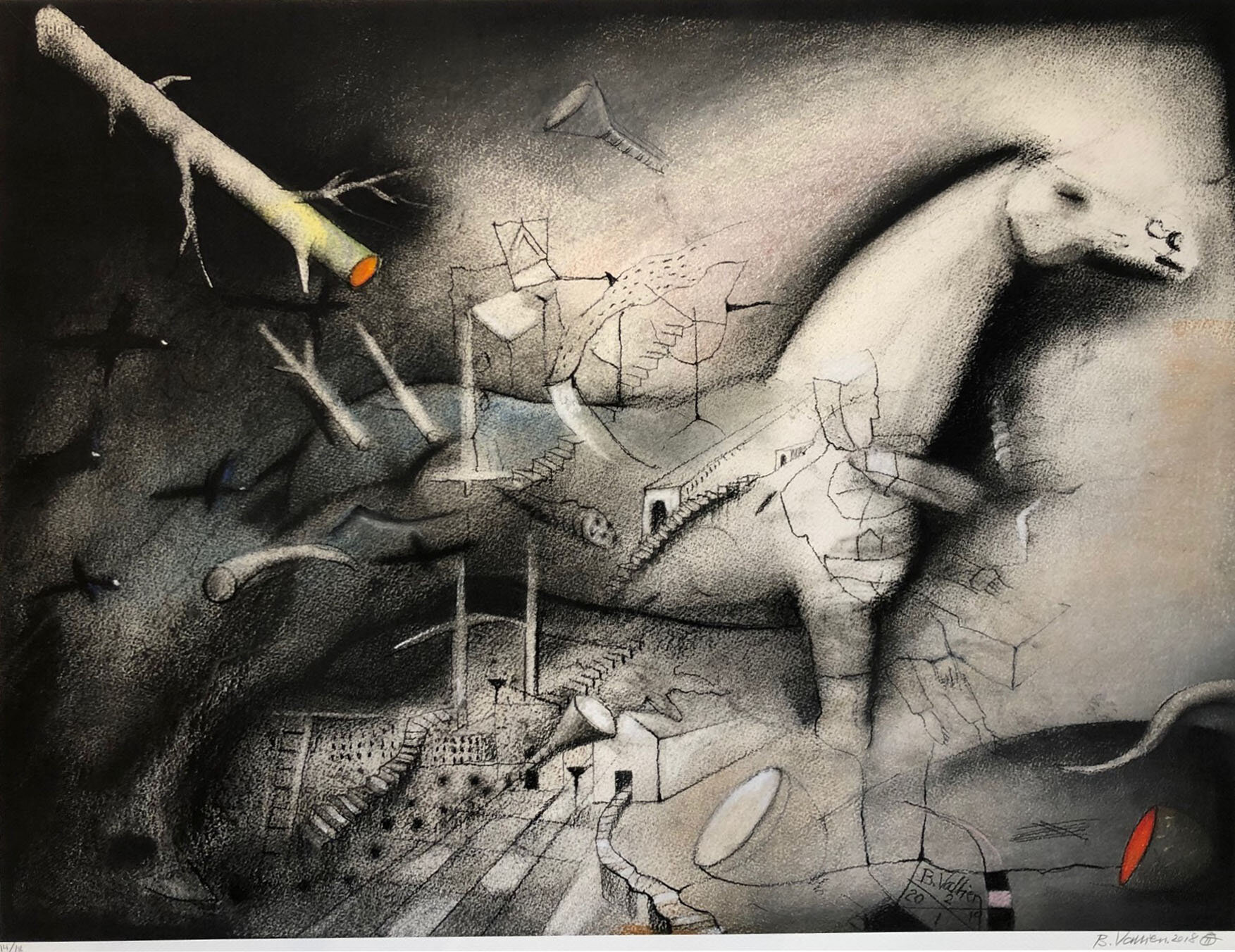I like to tell stories, and I like to have many things in my toolbox…
Every artist has a studio, but few have one that is as much of a home for them as that of artist Bertil Vallien. Vallien has been working in the Åfors Glass Factory for forty years now, originally coming to the factory in 1963 when it was on the brink of closure due to low demand for its product. He helped bring the factory back from the edge of extinction and grow into one of the most successful in its craft in Sweden. As he evolved his artistic practice inside its walls the factory thrived along with him, earning himself an indelible place in the hearts of its workers in the process and eventually Kosta Boda, (one of the two oldest companies in the world) became the parent company of Åfors to become Orrefors KostaBoda.
The landscape in Sweden on the way to visit Bertil Vallien.
It is said that early risers who visit the factory can usually spot Vallien in the morning as he likes to get off to an early start, beginning working around 7am. Vallien describes himself as a builder. Working in his space to build up surfaces on several pieces over long periods of time, working with his mold by hand and with various tools to create forms that give the glass a hand sculpted organic feel. During the preparation process as the studio fills with molds and inner forms, the energy is charged as anticipation mounts for the moment it will all come together; the pouring day. Bertil himself has said “When the time comes for the casting, this is the highlight of my life”.
Pouring his glass with a trusted team to see his weeks of preparation come together in a few minutes of thrilling satisfaction. The team of six of seven works seamlessly in a quickly coordinated effort to bring the works to life. His space is as unique as his work, specially crafted to facilitate the unique glass pouring techniques he has pioneered over the course of his career.
Bertil Vallien's statement that "glass eats light" is often quoted. Throughout his career as an artist, he has wrestled with the fact that the glass itself is beautiful, too beautiful, and he has sought resistance. Yet everything he does is beautiful.
"There is a beauty also in the dystopian. What I mean is that there are risks with this amazing material that easily sparkles and seduces. I don't want to be a part of that. I don't want to sing schlager… instead... for abstract singing!
- I can't help but... I like to tell stories, and I like to have many things in my toolbox.
Bertil often works with long time perspectives, such as the landscapes in the form of sand-cast cubes, where the rough casing is partly ground away so you can see what is hidden under the surface.
"I have taken up traces from the 80's about what is in the hidden depths under the thin shell we live on. These are dystopian images of bygone civilizations, war and environmental degradation, accelerating threats and implied events.
Pretty strong pictures”, he says.
The landscapes are also stations, stops if you like, in the journey towards new expressions. In them Bertil Vallien captures life and creates frozen worlds enclosed in the mass.
"All the cubes are some kind of impact, descriptions of a situation, both of unknown spaces and what is beneath the fragile crust. And it fits so well to work with glass, to enclose the bottomless sea.”
He mentions Jules Verne's journey to the centre of the earth as an inspiration, and the myth of the sunken Atlantis.
Cloud, (Landscape Series), 5.5 x 5.75 x 5/75”
_____________________
Video by Peer Eriksson
…in the gallery
_____________________
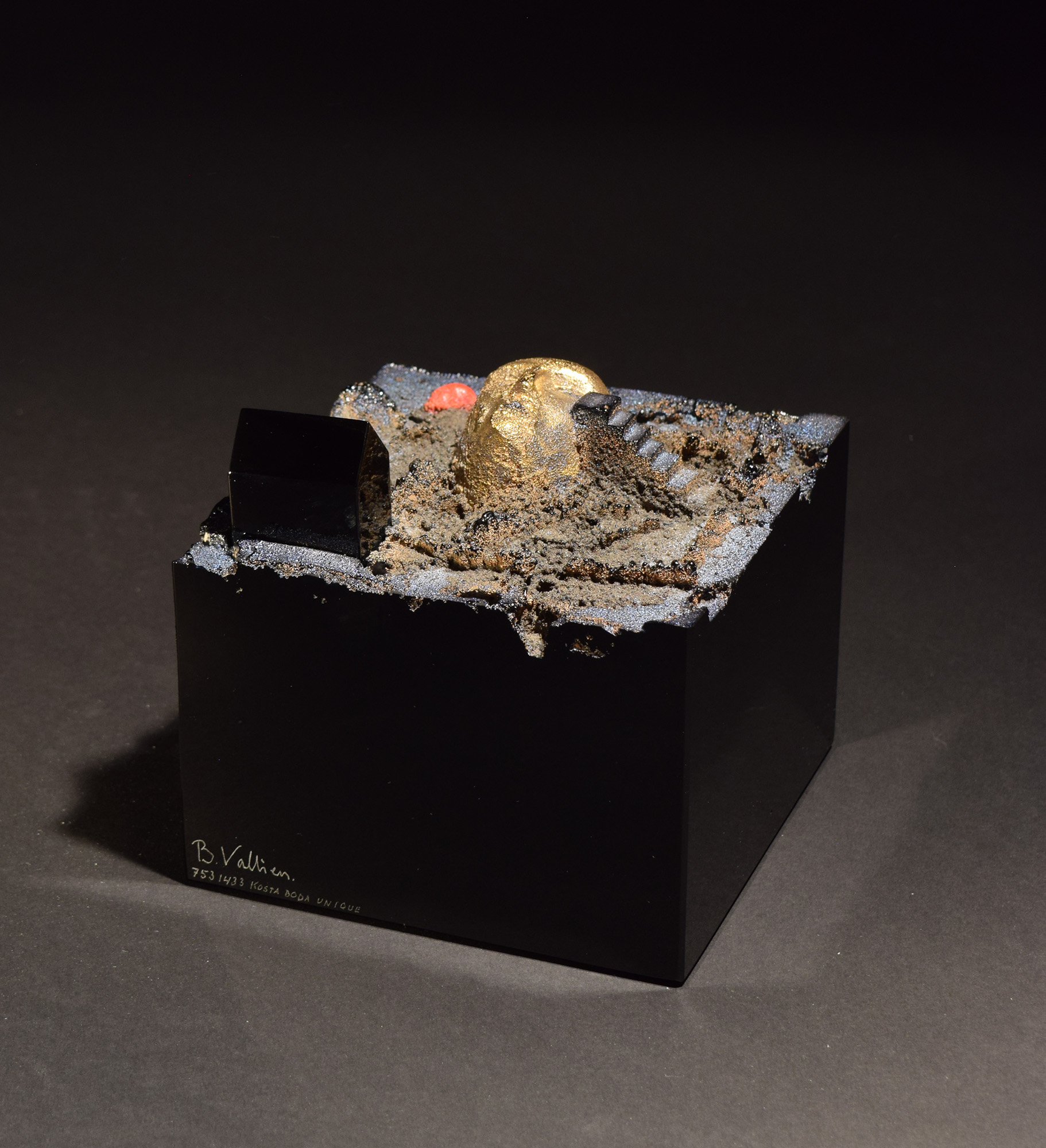


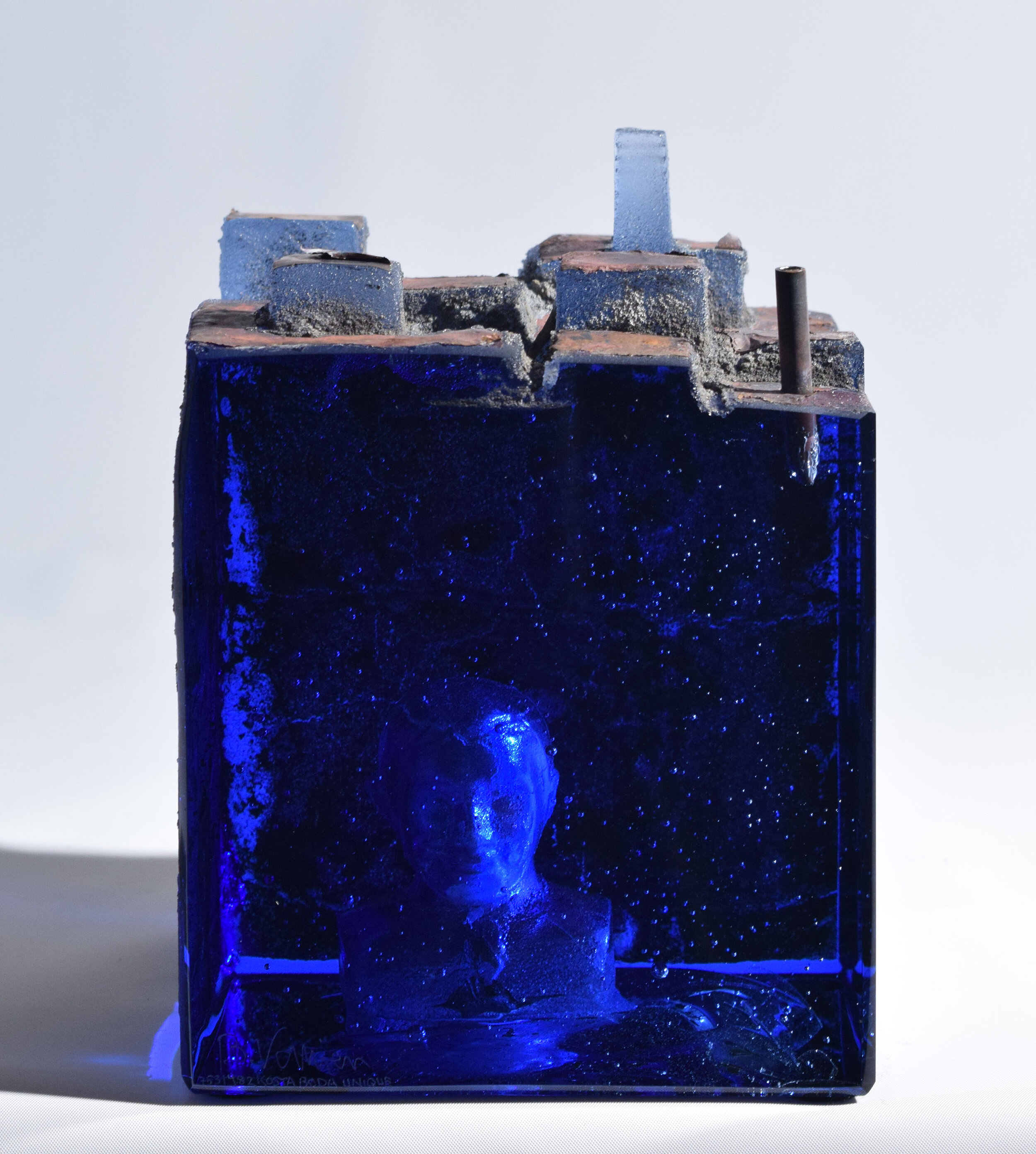
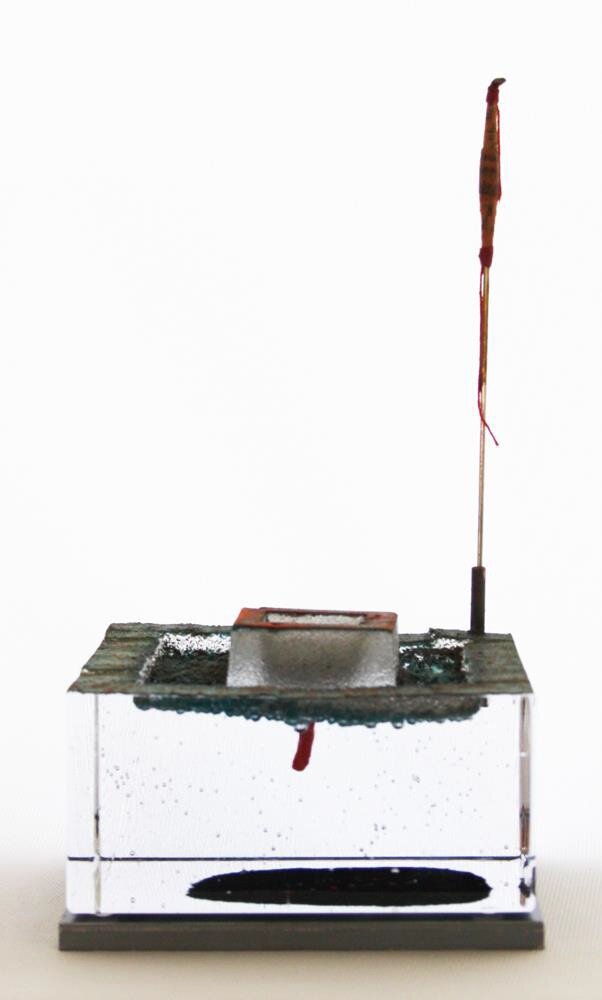
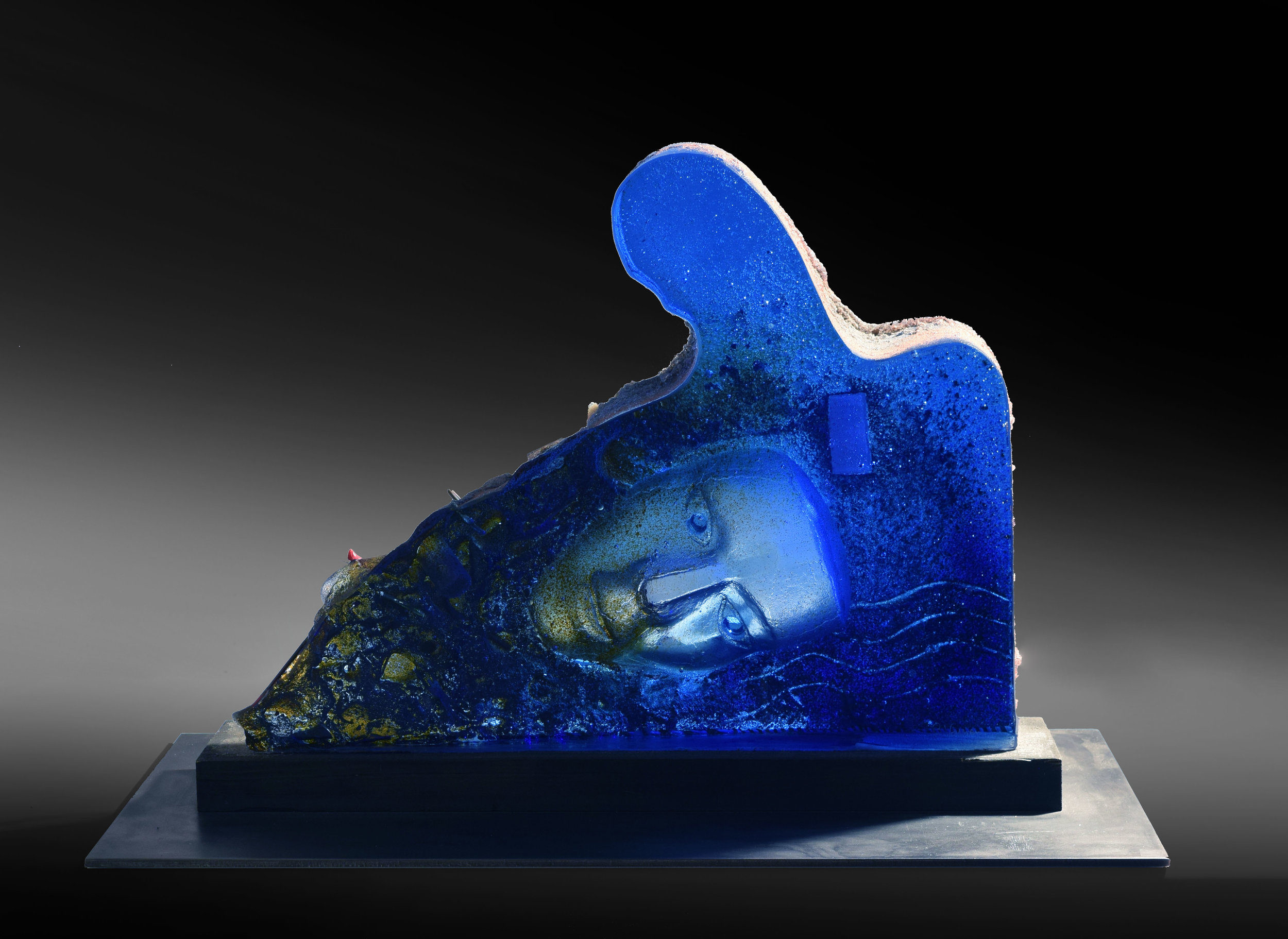
See more works on the Vallien’s gallery page of our website… click image below.
We are pleased to present a selection of Bertil’s prints at the gallery. Did you know he used to ride horses in 1957 during in his military service at K4 in Umeå?


